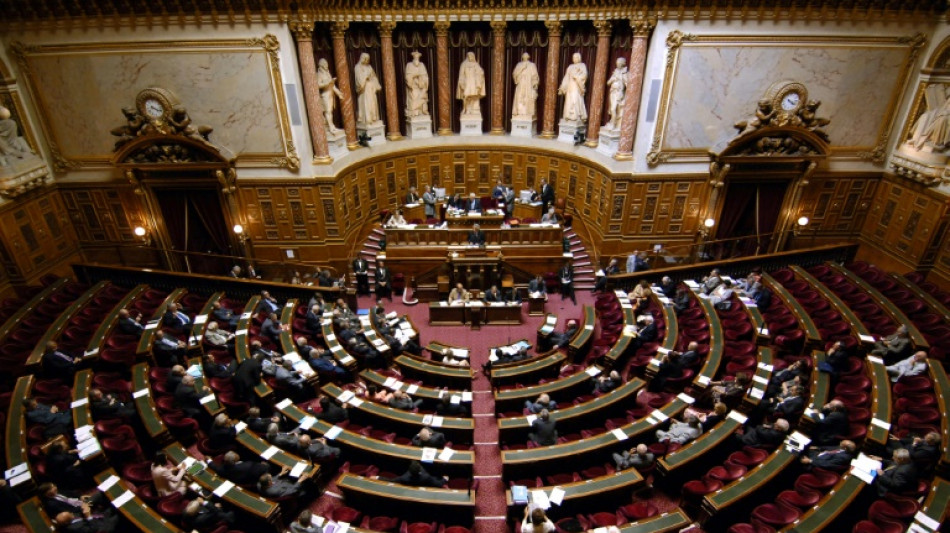
-
 US Supreme Court to hear case against LGBTQ books in schools
US Supreme Court to hear case against LGBTQ books in schools
-
Pistons snap NBA playoff skid, vintage Leonard leads Clippers

-
 Migrants mourn pope who fought for their rights
Migrants mourn pope who fought for their rights
-
Duplantis kicks off Diamond League amid Johnson-led changing landscape
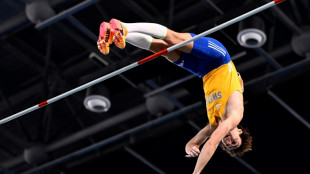
-
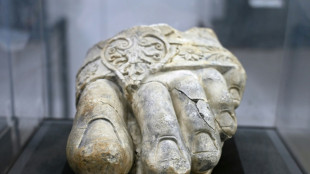 Taliban change tune towards Afghan heritage sites
Taliban change tune towards Afghan heritage sites
-
Kosovo's 'hidden Catholics' baptised as Pope Francis mourned
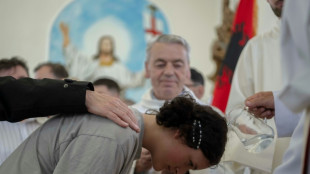
-
 Global warming is a security threat and armies must adapt: experts
Global warming is a security threat and armies must adapt: experts
-
Can Europe's richest family turn Paris into a city of football rivals?
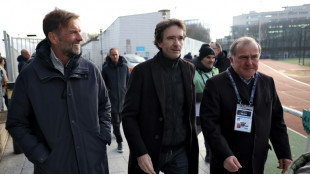
-
 Climate campaigners praise a cool pope
Climate campaigners praise a cool pope
-
As world mourns, cardinals prepare pope's funeral
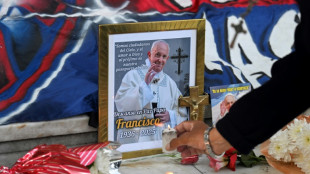
-
 US to impose new duties on solar imports from Southeast Asia
US to impose new duties on solar imports from Southeast Asia
-
Draft NZ law seeks 'biological' definition of man, woman
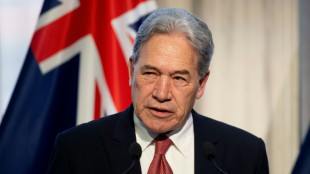
-
 Auto Shanghai to showcase electric competition at sector's new frontier
Auto Shanghai to showcase electric competition at sector's new frontier
-
Tentative tree planting 'decades overdue' in sweltering Athens

-
 Indonesia food plan risks 'world's largest' deforestation
Indonesia food plan risks 'world's largest' deforestation
-
Gold hits record, stocks slip as Trump fuels Fed fears
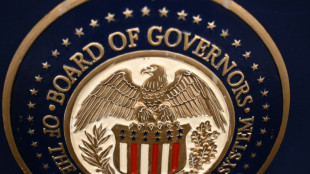
-
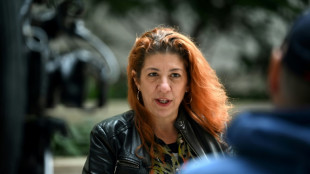 Trump helps enflame anti-LGBTQ feeling from Hungary to Romania
Trump helps enflame anti-LGBTQ feeling from Hungary to Romania
-
Woe is the pinata, a casualty of Trump trade war

-
 'Like orphans': Argentina mourns loss of papal son
'Like orphans': Argentina mourns loss of papal son
-
Trump tariffs torch chances of meeting with China's Xi

-
 X rival Bluesky adds blue checks for trusted accounts
X rival Bluesky adds blue checks for trusted accounts
-
China to launch new crewed mission into space this week

-
 Morocco volunteers on Sahara clean-up mission
Morocco volunteers on Sahara clean-up mission
-
Latin America fondly farewells its first pontiff

-
 'I wanted it to work': Ukrainians disappointed by Easter truce
'I wanted it to work': Ukrainians disappointed by Easter truce
-
Harvard sues Trump over US federal funding cuts

-
 'One isn't born a saint': School nuns remember Pope Francis as a boy
'One isn't born a saint': School nuns remember Pope Francis as a boy
-
Battling Forest see off Spurs to boost Champions League hopes

-
 'I don't miss tennis' says Nadal
'I don't miss tennis' says Nadal
-
Biles 'not so sure' about competing at Los Angeles Olympics

-
 Gang-ravaged Haiti nearing 'point of no return', UN warns
Gang-ravaged Haiti nearing 'point of no return', UN warns
-
US assets slump again as Trump sharpens attack on Fed chief
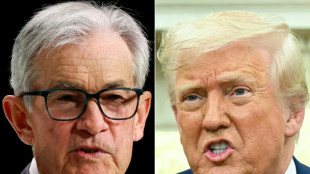
-
 Forest see off Spurs to boost Champions League hopes
Forest see off Spurs to boost Champions League hopes
-
Trump says Pope Francis 'loved the world,' will attend funeral
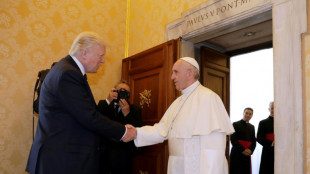
-
 Oscar voters required to view all films before casting ballots
Oscar voters required to view all films before casting ballots
-
Bucks' Lillard upgraded to 'questionable' for game 2 v Pacers

-
 Duplantis and Biles win Laureus World Sports Awards
Duplantis and Biles win Laureus World Sports Awards
-
US urges curb of Google's search dominance as AI looms
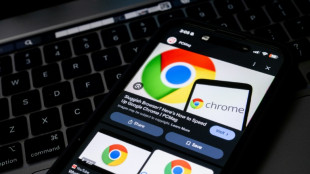
-
 The Pope with 'two left feet' who loved the 'beautiful game'
The Pope with 'two left feet' who loved the 'beautiful game'
-
With Pope Francis death, Trump loses top moral critic
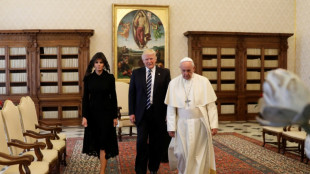
-
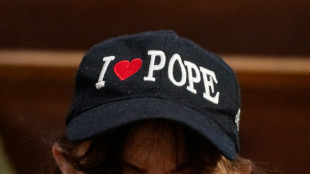 Mourning Americans contrast Trump approach to late Pope Francis
Mourning Americans contrast Trump approach to late Pope Francis
-
Leeds and Burnley promoted to Premier League

-
 Racist gunman jailed for life over US supermarket massacre
Racist gunman jailed for life over US supermarket massacre
-
Trump backs Pentagon chief despite new Signal chat scandal
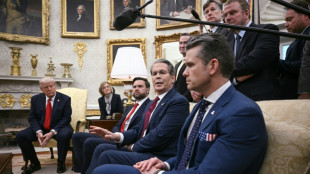
-
 Macron vows to step up reconstruction in cyclone-hit Mayotte
Macron vows to step up reconstruction in cyclone-hit Mayotte
-
Gill, Sudharsan help toppers Gujarat boss Kolkata in IPL

-
 Messi, San Lorenzo bid farewell to football fan Pope Francis
Messi, San Lorenzo bid farewell to football fan Pope Francis
-
Leeds on brink of Premier League promotion after smashing Stoke

-
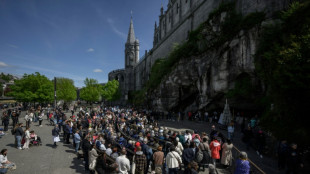 In Lourdes, Catholic pilgrims mourn the 'pope of the poor'
In Lourdes, Catholic pilgrims mourn the 'pope of the poor'
-
Korir wins men's Boston Marathon, Lokedi upstages Obiri


Parliamentary hearings worldwide used to spread anti-vaccine conspiracies
Standing on the podium of the Ohio Statehouse in the United States last year, a nurse pressed a key against her neck aiming to prove that Covid vaccines make people magnetic.
The key -- like the theory -- didn't stick, instead tumbling down her neck and leading to the video of her testimony going viral.
While the nurse's failure mainly prompted derision, it was just one example of how parliamentary hearings worldwide have been weaponised to spread vaccine misinformation since the start of the pandemic.
Parliaments have hosted known conspiracy theorists, who quickly post edited videos of their testimony on social media where the prestigious platform gives them the veneer of legitimacy, experts warn.
The nurse at the Ohio Statehouse was following the lead of anti-vaxxer Sherri Tenpenny, who had earlier testified at the invitation of Republican lawmakers, and has promoted the thoroughly debunked theory that coronavirus vaccines make people magnetic.
Known spreaders of Covid-19 misinformation have addressed hearings across the United States, such as Peter McCullough, who has testified to a Texas Senate committee as well as the US Senate in Washington DC.
Such parliamentary hearings "are part of an arsenal of disinformation," said Sebastian Dieguez, a neuroscientist specialising in conspiracy theories at Switzerland's University of Fribourg.
These figures paradoxically "need the seal of legitimacy imparted by the 'system'," such as mainstream politicians and media, that they spend so much time and rejecting, he told AFP.
- 'A trap' -
"I do think having the opportunity to participate in hearings gives those perspectives a legitimate platform," Molly Reynolds of the US think tank Brookings Institution told AFP.
She said she suspected that in some cases Republicans invited anti-vaccine witnesses to hearings to support their own views.
Dieguez said one argument was that, in a democratic legislative process, all voices have a right to be heard.
But this can be "a bit of a trap", he warned, "if it means giving a false sense of balance by offering a platform to positions that are not only in the minority but also often quite outrageous".
France's Parliamentary Office for the Evaluation of Scientific and Technological Choices has been accused of doing just that.
Earlier this year, it heard from speakers who gave misleading statistics about the adverse effects of Covid-19 vaccines.
Alain Fischer, who coordinates France's pandemic vaccine strategy, criticised the office after himself giving testimony at the Senate hearing in May.
It was "regrettable... that a public hearing was held where specialists who rely on scientific data and pseudo-experts who promote opinion not based on facts were placed on the same level," he told L'Express newspaper.
"This amounts to granting them a form legitimacy."
- Time to change the rules? -
Mathematician and politician Cedric Villani, the then president of the office, rejected the criticism, saying the panel "does not claim to offer more or less legitimacy to one person or another".
Senator Sonia de La Provote, the office's rapporteur, said the office was "proud" to hear from everyone.
"Only giving the floor to those we consider have the right speak seems to me to be particularly detrimental to our democratic functioning," she told AFP.
In the tiny neighbouring country of Luxembourg, several known anti-vaccine figures including French scientist Luc Montagnier spoke in parliament in January.
They were brought along by a group whose petition about compulsory Covid vaccines gained enough signatures to trigger a parliamentary debate.
The president of Luxembourg's Chamber of Deputies Fernand Etgen told AFP in January that it was "obvious" that "most of their assertions were untrue, false or misleading".
The parliament is looking at changing the rules about how much notification it gets about the identity of those who testify.
In January, it only found out who would be speaking the day before the event, making it "impossible for members of parliament to prepare," Etgen said.
T.Bondarenko--BTB




